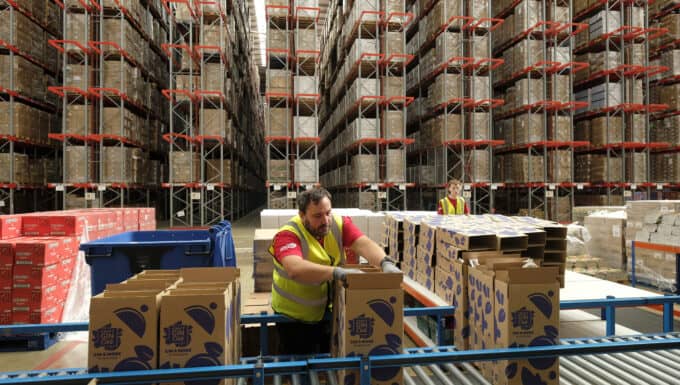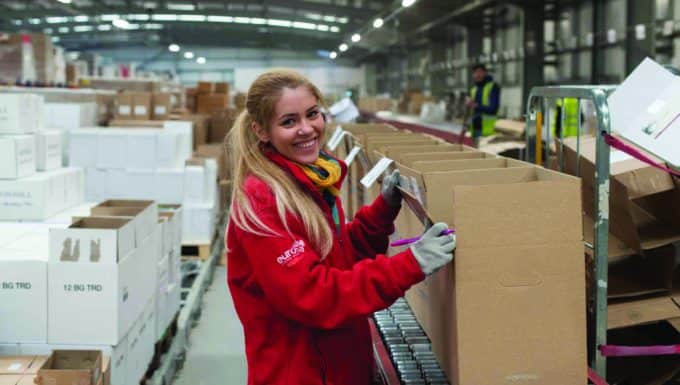In the fast-paced world of logistics, where efficiency and reliability are paramount, the challenges of warehouse fulfilment operations loom large. From managing inventory to orchestrating seamless delivery processes, every aspect of the supply chain must function like a well-oiled machine to ensure customer satisfaction and business success. It’s a reality that companies grapple with daily, striving to navigate the complex network of supply chain challenges while balancing cost efficiency and service excellence.
Yet, amidst the hustle and bustle of modern commerce, one persistent obstacle continues to haunt companies: failed fulfilment. These not only dent customer satisfaction but also inflict significant financial blows to companies, lurking as hidden costs beneath the surface of operations. In this article, we seek to uncover the hidden treasure trove of cost savings that automation and shared services bring to warehouse fulfilment. We’ll delve into the nitty-gritty of how these technologies and strategies can mitigate the costly repercussions of failed fulfilments, offering insights gleaned from real-world implementations and data-driven analysis. Welcome to a world where efficiency knows no bounds. Welcome to the future of logistics.
Understanding the fulfilment landscape
Managing fulfilment operations can feel like navigating a maze of challenges for companies worldwide. From the moment an order is placed to its final delivery, there are countless hurdles to overcome. One of the biggest challenges is the rising costs associated with fulfilment. As demand increases and consumer expectations soar, companies are under immense pressure to deliver goods quickly and efficiently, often at the expense of their bottom line.
Perhaps, even more concerning than rising costs, is the looming threat of failed fulfilments. When a package doesn’t reach its intended destination on time, in good condition and with the correct item, it is not just a minor inconvenience – it’s a major blow to both customer satisfaction and company profitability. Customers become frustrated, trust is eroded, and businesses risk losing valuable repeat business. According to a recent report conducted by leading audit, tax and consulting firm RSM UK, called ‘The Real Economy’, 25 per cent of businesses experiencing upstream supply chain issues say their reputation is deteriorating as a result. More than a third (38 per cent) experiencing supply chain problems said they had seen an overall decline in customer satisfaction, and just over a quarter (28 per cent of businesses), said they have lost one or more key customers within the past year due to unanticipated supply chain pressures.
Consider this: studies have shown that failed fulfilments can cost companies millions of pounds each year. Whether it’s due to picking errors, missed delivery windows, incorrect addresses, or damaged goods, the financial implications are staggering. Research indicates that the average cost of a failed delivery can range as high as £25 per occurrence. Multiply that by the thousands – or even millions – of deliveries companies handle each year, and you begin to grasp the magnitude of the problem.
In the next sections, we’ll explore how automation and shared services offer a pathway to overcoming these challenges, revolutionizing the way companies manage their fulfilment operations. By harnessing the power of technology and collaboration, companies can mitigate the risks associated with failed fulfilments and pave the way for a more efficient and profitable future.
Leveraging automation and shared services for efficiency
Automation plays a pivotal role in revolutionising fulfilment processes, offering streamlined solutions from order processing to inventory management. With robust quality control processes to prevent picking errors, thus reducing cost, a shared-user system can be quickly scaled up or down to meet fluctuating demand. In turn, this allows for accurate financial modelling because of the high level of predictability. For peak planning, this is crucial to ensure a seamless supply chain from start to finish whilst not blowing budgets. By implementing automated systems, companies can significantly reduce manual labour, minimise errors, and accelerate order fulfilment, ultimately enhancing overall efficiency.
In addition to automation, shared services present an innovative approach to optimising fulfilment operations. By pooling resources and expertise, companies can access shared warehousing facilities and IT infrastructure, unlocking cost efficiencies and operational synergies.
Shared warehousing, for instance, enables companies to leverage shared storage spaces, reducing overhead costs and increasing flexibility in inventory management. Similarly, shared IT infrastructure allows businesses to access advanced technologies and expertise without the burden of individual investment and maintenance costs. Companies participating in shared warehousing initiatives have reported significant cost savings and improved delivery performance, while those leveraging shared IT infrastructure have achieved greater agility and scalability that is cost-friendly in their operations.
Europa Warehouse – the award-winning, specialist third-party logistics (3PL) division of Europa Worldwide Group – has a ‘shared-user’ automated solution, housed at its 715,000 square-foot warehouse in Corby. This single facility provides state-of-the-art, £11 million automation technology to multiple businesses, making access more affordable. This shared-user approach to automation is very rare within the UK market.
By embracing these innovative approaches, companies can streamline processes, reduce costs, and position themselves for success in today’s dynamic marketplace.
Quantifying the impact on failed fulfilments
Exploring the direct correlation between automation, shared services, and the reduction of failed fulfilment reveals significant insights. Data and research findings underscore the effectiveness of automation and shared services in improving delivery performance and driving long-term profitability. Significant reductions in delivery errors always lead to smoother operations, better order accuracy, and happier, more loyal customers. Furthermore, the financial implications of minimising failed fulfilments are profound, with companies saving substantial amounts on re-delivery costs, refunds, and potential loss of customer trust.
The need to do more with less seems to lean heavily toward automation and technological solutions. However, we recognise that all businesses are different and understand that simply offering a technological solution to 3PL requirements is not always the answer to achieving a lean, competitive 3PL model. Finding the right balance takes time, dedication, the ability to dig deep to understand each individual business and ultimately the ability to be creative in the design of solutions that deliver efficiencies and improvements. At Europa, this is what we are good at.
For professionals seeking to enhance their logistics operations, practical advice and strategies are essential for successful integration. These include carefully evaluating and selecting suitable automation solutions and shared service providers. A step-by-step guide or checklist can aid in this process, ensuring the chosen technologies align with specific business needs and goals.
Ongoing monitoring and optimisation are equally crucial. Sustained improvements in fulfilment efficiency and cost reduction require diligent oversight. Regularly evaluating performance metrics and adjusting strategies as needed can help maintain momentum and drive continued success. By prioritising continuous improvement, companies can stay ahead of the curve and maximise the benefits of automation and shared services.
Conclusion
In conclusion, automation and shared services, two transformative forces, represent game-changing solutions reshaping the fulfilment landscape and offering a beacon of hope for companies seeking to streamline operations, significantly reduce labour costs and increase productivity.
Real-world examples, such as a drinks retailers’ ability to scale up from 40,000 to 100,000 pick units in 24 hours demonstrate the tangible benefits of integrating these innovations into logistics operations. Businesses that are utilising technology to create added value need to encompass a tailored solution which meets the business requirements of customers. Finding the right technologies that help to drive up productivity, improve quality, remove waste, and stabilise workflows is essential. Having automation is one thing but having a team with the skills, expertise and experience to operate it successfully is quite another. Working with the right people is vital – it’s this collaboration between the two which drives success.
Whether evaluating suitable technologies or implementing collaborative partnerships, taking proactive steps towards automation and shared services is essential for driving long-term success in the competitive landscape of modern logistics. Reach out to Europa warehouse team today to explore our innovative automation and shared warehouse solutions.


























